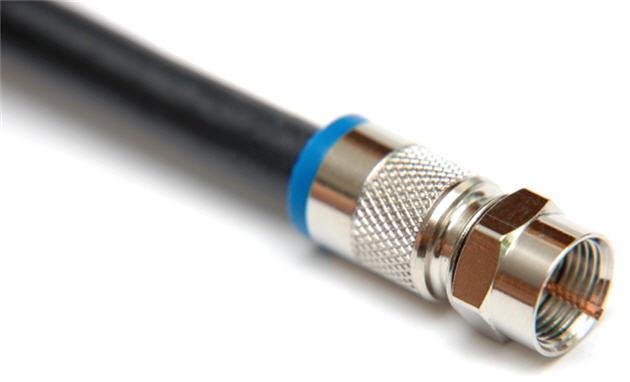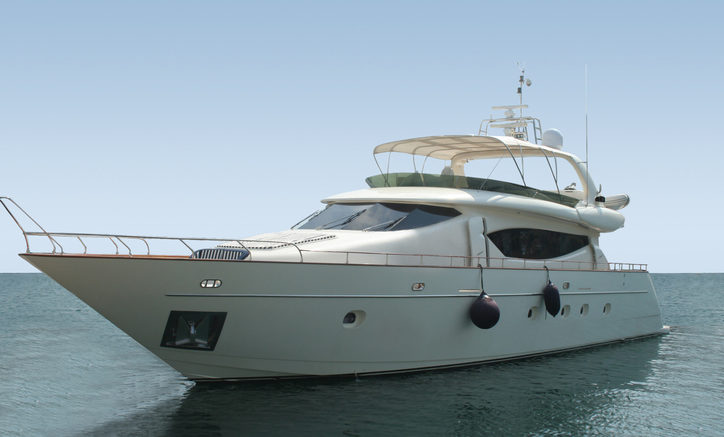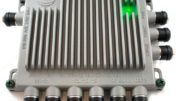OK, so much for the clickbait headline. You have to do something in order to get Google to notice you sometimes. As they say, don’t blame the player, blame the game.
If you have a satellite television system on your boat, chances are it’s over 5 years old. In some cases it could be much older than that. Satellite TV for marine was incredibly popular in the 2000s and 2010s when there was simply no other entertainment option out there. Today you have internet and cellular options, and of course satellite TV is still in the mix. But, even though your satellite system may have been giving you great service for years, there could still be a silent killer lurking that threatens to take the whole system down just when you can’t deal with it. (oh boy, there’s that clickbait again.)
OK here’s the story
You know that salt water is tough on your boat. While it’s not as corrosive as say, battery acid, it will eat through paint, varnish, and especially metal. There’s a whole scientific reason for how the saline content in the water encourages oxygen to combine with the molecules in the stuff that makes up your boat, which in turns weakens those materials. But you’re not here for that and you probably already know it.
What you might not have realized is the effect that salt water can have on your satellite TV’s cables. The tiniest bit of salt water exposure on satellite cables can slowly eat away at them from the inside. You wouldn’t notice the difference at first, but at some point those cables will get so degraded that they won’t carry signal effectively. When that happens your only choice is to replace those cables right away. It doesn’t matter if you’re 50 miles out at sea, you won’t get satellite TV until that cable is replaced. Period.
So, the smartest thing to do is inspect cables every year and plan to replace them on a schedule. About every seven years is a pretty good guess, but damage can occur after just one season depending on how your cables are used.
How to check for damage to a satellite cable

You should start by looking at the connectors. The connector itself should be nice and shiny without large scratches or visible brass under the chrome plating. The part where the connector spins should be free from corrosion and grit. When you unscrew the cable it should be free from dirt on the inside and the copper center conductor should be shiny and bright, not dull and brown. Look at the edge of the connector where it meets the cable and see if there has been any sign of water getting in. Even water spots can indicate a problem.
Look along the entire cable, as much as you can, to look for signs of bends. Generally speaking, black cable will turn a little bit white if it’s been bent. The bend may smooth out but the discoloration will still be there. White cable is a little harder to tell bending on. Look to see if there are any nicks in the rubber jacket or any areas where the cable is swollen or dimpled. A difference in the cable’s diameter will indicate that water has gotten in and degraded the dielectric.
Should you reconnectorize old cables?
Yes, reconnectorize is a word. I know it doesn’t sound like a word. Trust me.
In a marine setting, reconnectorizing should be a temporary solution. If you’re out at sea and your TV starts acting up, your options are limited. You may have some RG6 ends on the boat in a drawer. If you see that the connector is starting to get corroded, by all means try a new connector. However, it’s a sure bet that corrosion is also in the cable itself. Don’t just add a new connector and assume things are fixed permanently. Replace the cable as soon as possible.
Is there anything you can do to extend the life of a cable?
Really the only thing you can do is try to keep saltwater exposure to a minimum. All your electronics should be kept away from the salt air as much as possible. When it comes to cables, there is one thing you can do, at least if you’re the sort of boat that travels long distances.
If you travel outside the US, you may have different sets of wires for US satellite and international satellite. That’s common since US satellite systems are so different from those used in other parts of the world. In that case, you want to make sure there’s no chance for an unused cable to corrode.
Don’t leave cables bare. Always terminate them using an F81 barrel connector and a terminator. You can buy the barrels and the terminators from Solid Signal if you want. However, this is one of those few cases where it’s also ok to go to a local home store and buy what they have. There’s no signal really traveling through these cables so it doesn’t matter as long as they fully close up the connector.
Terminating any unused cables will keep salt air from the inside of the connectors. It will also help your satellite system work better. Unterminated cables cause an imbalance that your satellite system will strain to fix. It’s a good idea to make sure that any cable not connected to a device is terminated all the time.
Need more info? Call the experts!
The folks at Signal Connect have more experience than anyone else in the world at activating marine satellite systems. We can help you with service, upgrades, and even help you integrate your TV system with your new internet system. We’re here to help! Call the experts at 888-233-7563 during East Coast business hours. If it’s after hours, fill out the form below and we’ll get right back to you.





